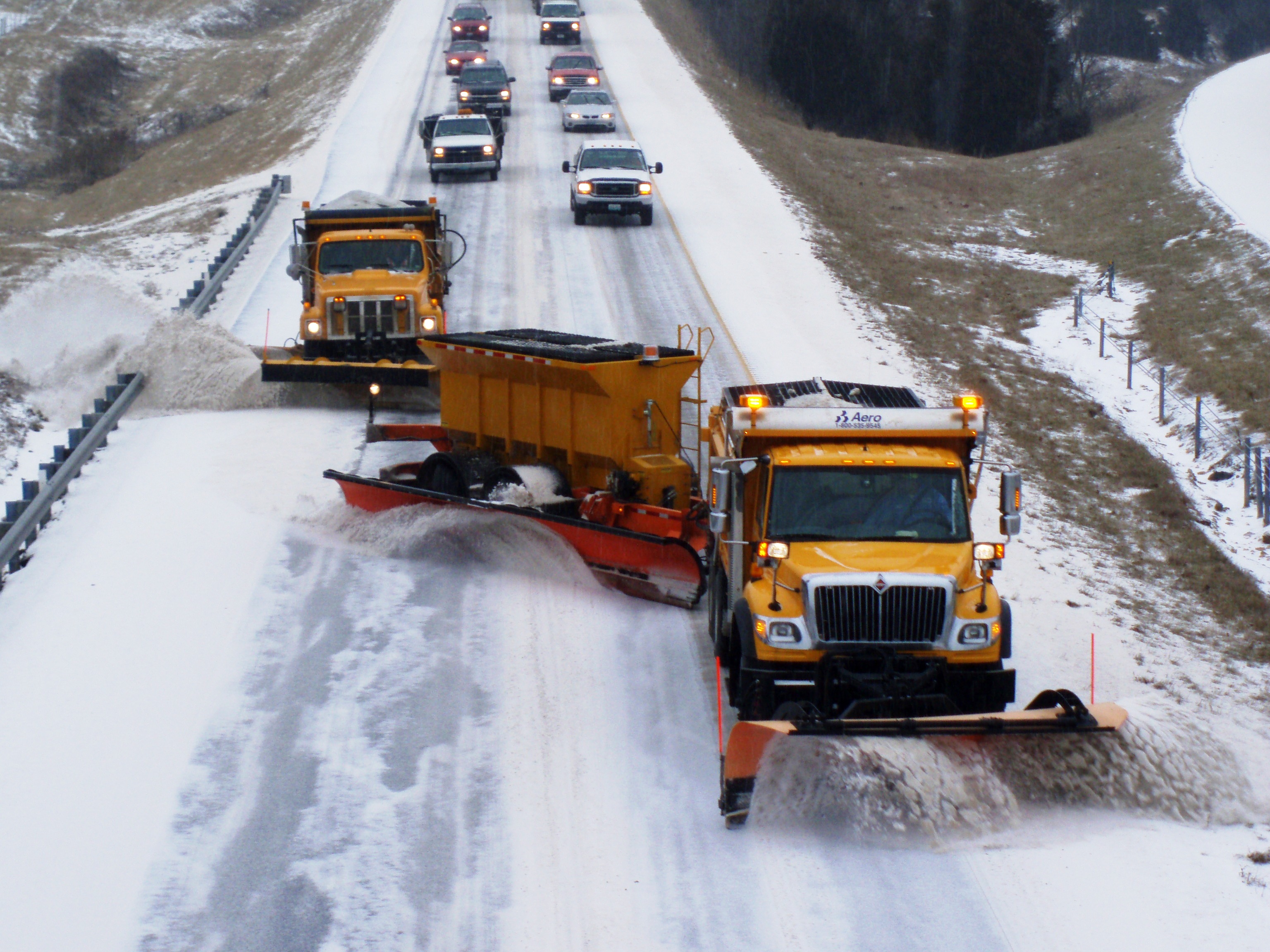Towns Say Winter Won’t Wait for Lamont, Legislators to Cut a Deal

Audio By Carbonatix

As winter approaches, Connecticut towns still haven’t received municipal grants that pay for road paving and snow removal. Wikimedia image courtesy of CTMirror.org
State aid was not distributed in July, and some communities have had to raid their snow removal funds to pay for summer paving and fall tree trimming work.
By Keith M. Phaneuf, CTMirror.org
Municipalities say the stalemate between Gov. Ned Lamont and legislators over long-term transportation funding is about to create an immediate crisis: With $30 million in promised local aid months overdue, fall tree trimming and winter snow removal are at risk.
Lamont is delaying action on a bond package, saying he needs to know if lawmakers will provide new revenue for transportation or whether more of the state’s credit capacity will be needed to shore up the faltering special transportation fund.
If he releases the funds, the governor loses leverage that he hopes will help win passage of a 10-year transportation plan he intends to release in coming weeks. But the cities and towns say they cannot afford the delay.

Connecticut Conference of Municipalities Executive Director Joe DeLong. CTMirror.org file photo
“This is more than just politics,” said Joe DeLong, executive director of the Connecticut Conference of Municipalities. “It’s getting to be a public safety issue.”
Cities and towns rely heavily on the state’s Town Aid Road [TAR] grant to pay for summer road repaving work, fall tree clearing, and winter snow removal. The state borrows the $60 million annually, giving towns half in July and half in January.
But the $30 million due to towns in July didn’t go out because Lamont and legislators haven’t agreed yet on a bond package – a schedule of projects and programs to be paid for with borrowing rather than with cash from the state’s operating budget.
Lamont says he won’t agree on a bond package until legislators settle on a long-term transportation rebuilding program, which also would rely heavily on state borrowing.
When the first round of state aid failed to materialize, many communities paid for summer paving work by raiding local funds set aside for winter snow removal – with the hope of replenishing those funds once the state TAR grant was released.
Now fall tree-clearing season has arrived, and towns again are tapping their snow removal accounts – or the emergency reserves they’re supposed to be building against the next recession.
And no one knows how soon the first snowfall of the season will be, said Elizabeth Gara, executive director of the Connecticut Council of Small Towns.
“We’re hearing a lot of concerns from small towns,” she said. “They’re going to be in a real difficult situation come any type of snowstorm or other weather incident.”
DeLong said no community would willingly cut corners on winter snow removal.
But absent state aid, cities and towns must either draw down their reserves or – in extreme cases – seek an emergency property tax hike.
The latter isn’t likely, municipal advocates say, for political reasons.
And many communities have limited reserves and are hesitant to drain them while economists warn of a national recession by late 2020 or early 2021.
Sen. Cathy Osten, D-Sprague, who co-chairs the legislature’s Appropriations Committee and also is her town’s first selectwoman, has asked Lamont to compromise.
A full two-year bond package involves billions of dollars in potential borrowing, but Osten said legislators and Lamont could act now on financing just for municipal aid programs.
This could include the $60 million due each year for the Town Aid Road grant, another $30 million per year for the Local Capital Improvement Program, and a final municipal projects grant that distributes $60 million annually.
“Municipal aid and bonding wasn’t always the way it is now,” Osten said.
Over the past decade, as legislators and governors dealt with lean fiscal years, more grants were removed from the budget and put on the state’s credit card.
“Not getting a bond package done has put a lot of municipal projects in limbo,” Osten said, adding this not only has threatened winter snow removal efforts, but stalled many local economic development programs and weakened Connecticut’s construction industry.
House Minority Leader Themis Klarides, R-Derby, has made a similar pitch for compromise.
“Towns and cities operate on a shoestring [budget] on a regular basis,” she said. “If we’re not going to give them something, we should tell them” in the spring when the state budget is adopted.
“They are not a victim of the dysfunction of Hartford,” she added.
Klarides and her fellow Republicans in the House and Senate oppose tolls.
Lamont says the GOP’s alternative to tolls, which would divert bonding dollars in future years from school construction and other programs into transportation work, would worsen the state’s heavy debt burden and forfeit hundreds of millions of dollars in potential annual toll receipts from out-of-state motorists.
When asked about the potential for action soon on a bond bill aimed just at municipal grants, Lamont spokesman Rob Blanchard was diplomatic but noncommittal.
“We understand and are sensitive to the concerns raised by municipalities and we continue to work toward an agreement on the final bond bill as expeditiously as possible,” he said. “When we reach an agreement, the municipalities will stand to benefit directly via a series of programs funded in the capital budget – just as the state should benefit from long overdue transportation improvements.”
Lyle Wray, who is both executive director for the Capitol Region Council of Governments and a longtime transportation advocate, said he understands Lamont’s quandary.
“We need to get our economic growth accelerated and it’s wobbly as hell,” Wray said. “A skilled workforce and transportation are critical drivers for economic growth.”
But Wray also said the administration might have been better served by linking transportation to some issue other than bonding and municipal aid.
For example, Wray added, Lamont could have insisted last spring that legislators adopt tolls before he would agree to the minimum wage hike and paid family and medical leave program that the Democratic majority favored.
House Speaker Joe Aresimowicz, D-Berlin, defended the governor and asked why requiring towns to tap their reserves for winter snow removal is a greater crisis than ignoring the maintenance needs of an aging, decaying bridge.
Can Connecticut allow a transportation debate that has been delayed for nearly two decades to remain unresolved? he added.
“I understand the needs of the towns are being held up as part of the ongoing negotiation,” Aresimowicz said. “We want our towns to get all of the money they are supposed to get. But our transportation problems are so severe that it’s going to take drastic steps to get us going in the right direction. At some point you have to hold people accountable and the leverage you have is the money that goes to their municipalities.”
Reprinted with permission of The Connecticut Mirror. The author can be reached at [email protected] .
Like what you see here? Click here to subscribe to We-Ha’s newsletter so you’ll always be in the know about what’s happening in West Hartford!



